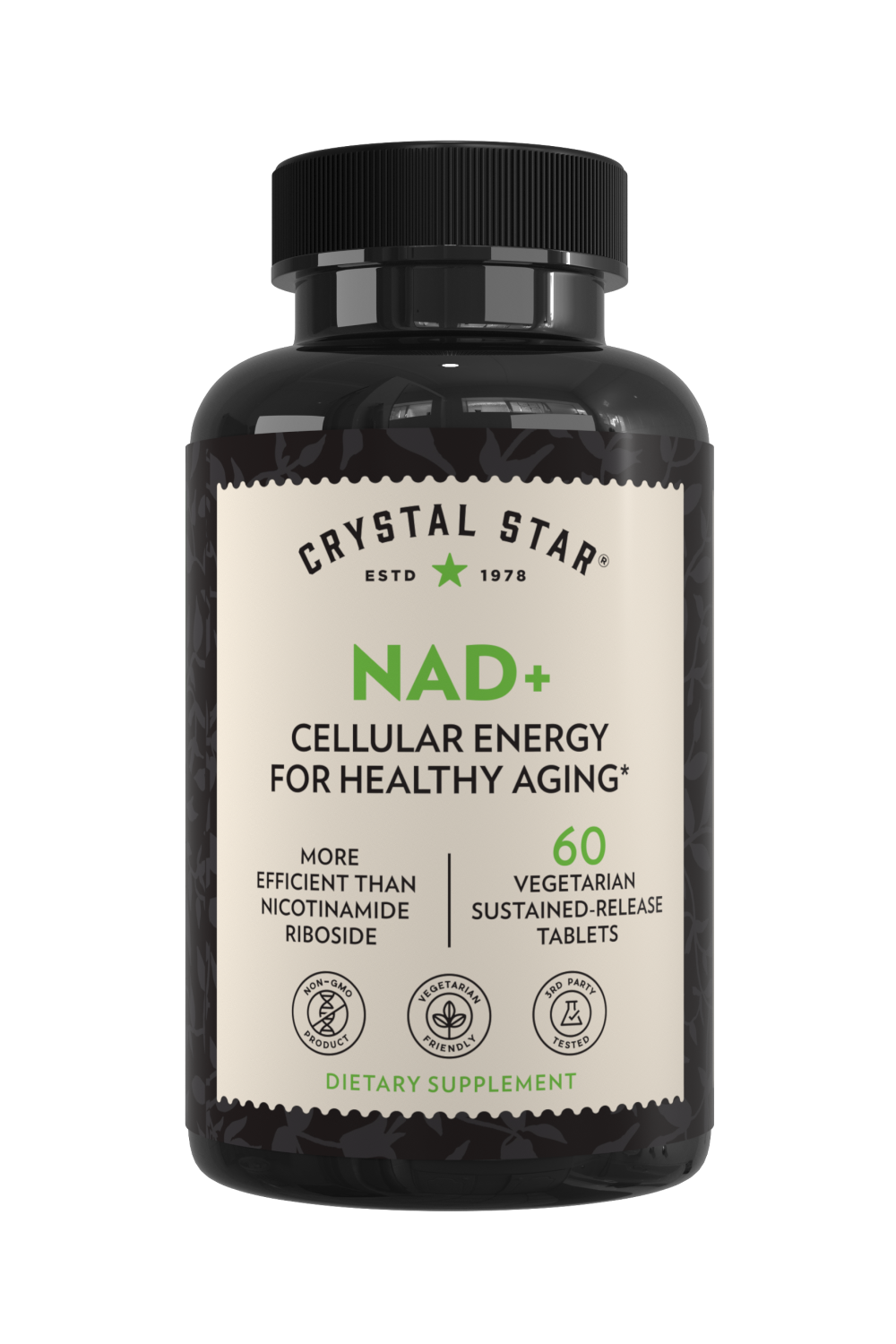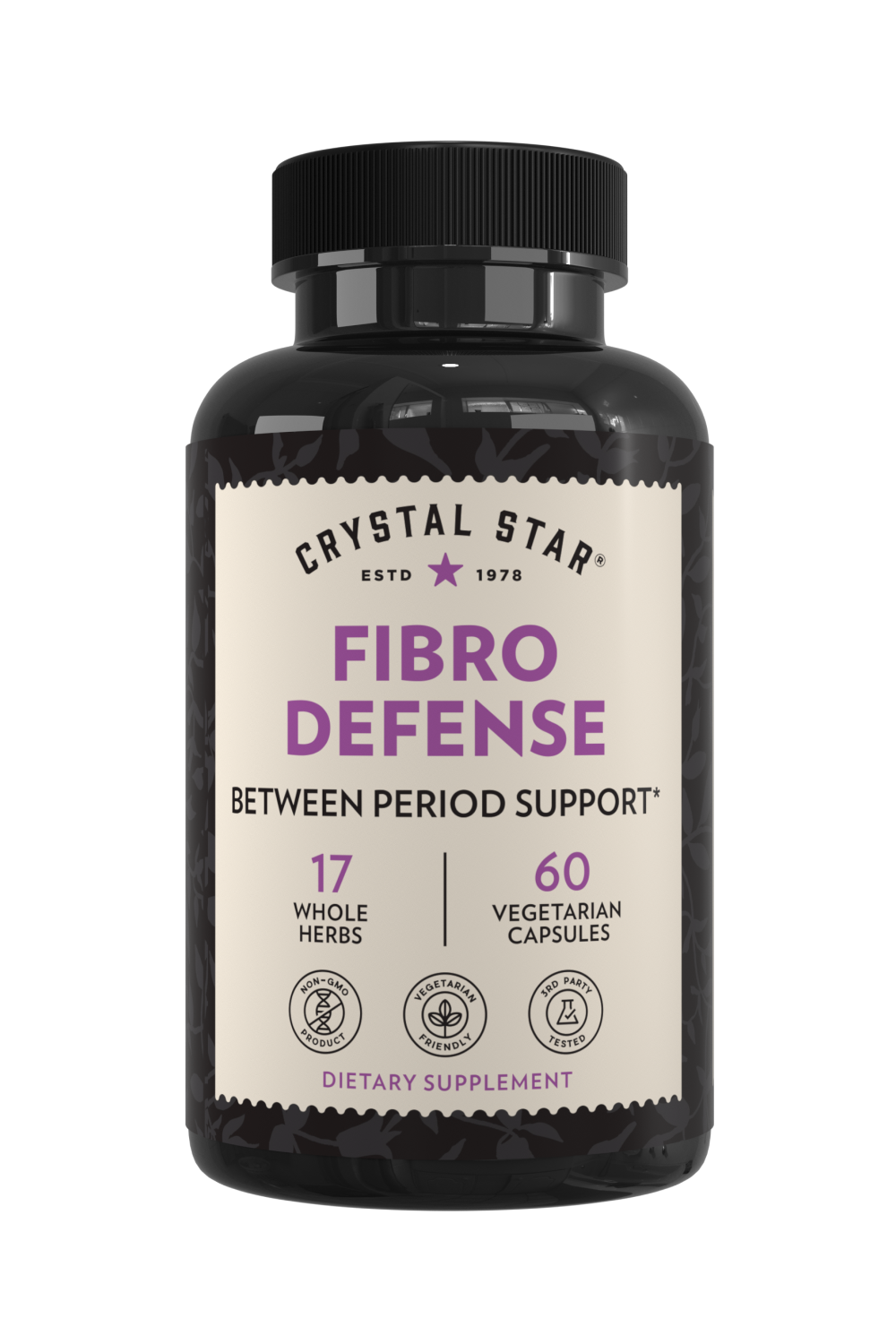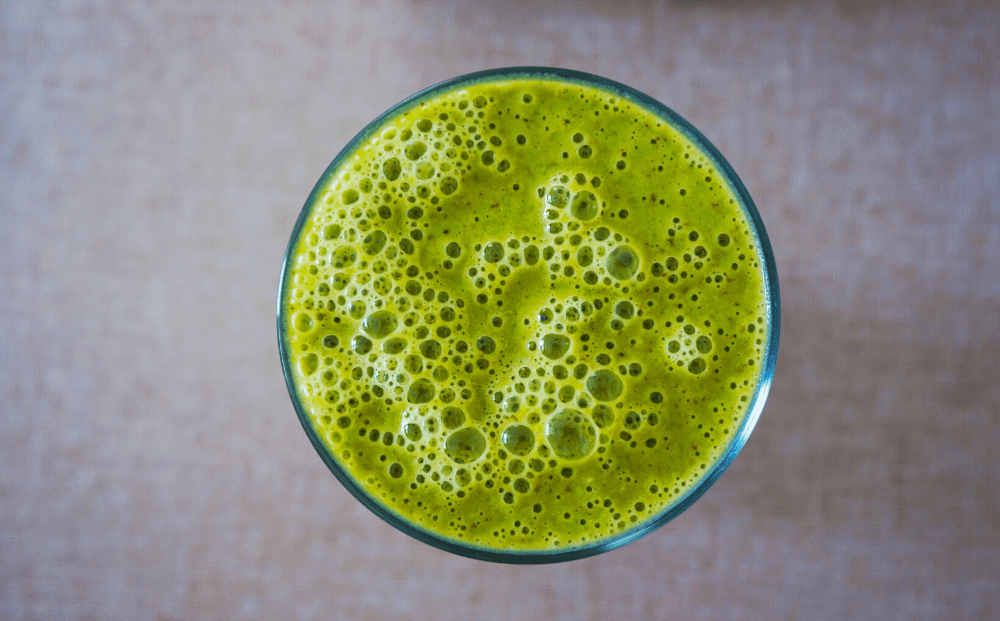
Feeling blue? St. John’s wort can (maybe) help.
If you’ve ever considered using herbal supplements to support your health, you’ve probably heard of “St. John’s wort.” Also known as “Hypericum perforatum,” St. John’s wort is an herb that has been used for centuries for a variety of ailments. [1]
St. John’s wort was even used in ancient Greece, where it was thought to help alleviate nervous disorders. And as you’ll see, science has proven the ancient Greeks correct in their use of this herb.
Today, St. John’s wort is mostly known for its potential to help with mental and emotional balance. And with more and more people turning to prescription antidepressants for support, it’s important to know about all your options.
Science is showing that St. John’s wort could indeed help with things like depression and anxiety, along with a range of other health benefits also.
So in today’s blog post, we’re going to talk about St. John’s wort, how it works, and the types of ailments that it can benefit.
CAN NEUROCHEMICAL IMBALANCE CAUSE DEPRESSION?

In order to understand the science of how St. John’s wort can help with depression, we have to know why depression happens in the first place.
According to some researchers, depression may be caused by chemical imbalances in the brain.[2] And this imbalance can happen with a variety of different brain chemicals, including dopamine and serotonin.
Dopamine for example, can affect your thinking ability, levels of motivation, levels of attention, and working memory.[3] Serotonin on the other hand can affect your mood, anxiety levels, reward processing ability, appetite, and also memory.[4] [5]
Now, one way to help “balance” these neurochemicals is by changing their levels in the brain. This is why people are often given prescription antidepressants to help with things like depression.
For example, “selective serotonin reuptake inhibitors” (SSRIs) affect how your brain processes serotonin. These drugs “block the reuptake” of serotonin into your brain cells. This creates higher levels of serotonin activity in the brain, which can help to alleviate the symptoms of depression.
But these medications can also cause a variety of side effects in many people.[6] [7] This includes symptoms like:
- Nausea
- Gastrointestinal disturbance
- Anxiety
- Agitation
- Insomnia
- Sexual dysfunction
- Weight gain
- Suicidal thoughts
Antidepressants can also lose their effects after longer term use due to increased tolerance. [8]
Some researchers also point out that these “reuptake inhibitor” drugs could actually deplete the brain’s neurochemical levels over time.[9] One animal study on the chronic use of SSRIs supports this idea.[10]
This “brain depleting effect” may be a reason why SSRIs can increase suicidal thoughts in certain patients who may be more vulnerable to them. [11]
So while prescription antidepressants can be a good option for many people, others may not tolerate them well. So people in this situation (especially) may want to seek out other options under the guidance of their healthcare provider.
And for cases like this, an herbal supplement like St. John’s wort may be able to help.
ST. JOHN’S WORT MAY HELP TO SUPPORT YOUR MOOD

As we’ll talk about later in this post, St. John’s wort can help with a variety of different ailments. But, it’s most well known for its ability to help with depression.
Researchers at the University of Washington reviewed all the available studies on the effectiveness of St. John’s wort, up until the year 2000 and found eight clinical trials that met their quality criteria.
Overall, these eight studies found that St. John’s wort was more effective than placebo in treating mild to moderate depression. More specifically, the patients in these studies responded to St. John’s wort 23 to 55% more than placebo.[12]
And though the response to St. John’s wort was 6 to 18% lower compared to prescription antidepressants, these studies still show that St. John’s wort can be a viable option for many people.
Then, another study in 2016 reviewed 35 clinical trials on the effectiveness of St. John’s wort. These researchers also found St. John’s wort to be effective in reducing symptoms of mild to moderate depression. And, these 35 studies found that the benefits were similar to those of prescription medications.[13]
Then in 2017, another group of researchers did a similar review on 27 clinical trials looking at St. John’s wort. And they also came to a similar conclusion. Additionally, they found that people tended to be more compliant in their use of St. John’s wort, and discontinued prescription antidepressants at a higher rate. [14]
In other words, the current scientific consensus is that St. John’s wort can be beneficial for issues like mild to moderate depression.
In fact, doctors in Germany are approved to use St. John’s wort in the treatment of depression and anxiety. In Germany, doctors prescribe St. John’s wort more often than they prescribe serotonin reuptake inhibitors (SSRIs) for children and adolescents with depression.[15] And overall, they prescribe over 60 million doses of St. John’s wort daily.[16]
But in the U.S., doctors rely much more on prescription antidepressants like serotonin reuptake inhibitors. [17]
HOW DOES ST. JOHN’S WORT AFFECT YOUR BRAIN?

So research has shown that St. John’s wort can help with symptoms of depression. But how does it work?
St. John’s wort contains a variety of plant compounds that can have significant effects in the body. Two of the most active ingredients in this herb are “hyperforin” and “hypericin”—both of which may be responsible for St. John’s wort’s mood-elevating effects.
Hyperforin for example can block the reuptake of a variety of brain chemicals including serotonin, dopamine, L-glutamate, GABA, and noradrenaline. And when you block the reuptake of these brain chemicals into your brain nerve cells, it increases their effect in the brain.[18]
Researchers also explain that hyperforin inhibits serotonin uptake in a different way than prescription antidepressants. Hyperforin has also shown to increase the number of serotonin receptors in the brains of animals.[19]
Hypericin is another active compound in St. John’s wort that can help to support mood. This compound was shown to block the enzymes that break down brain chemicals like dopamine, noradrenalin, and serotonin. This increases the activity of these brain chemicals and can elevate your mood.
Hypericin may also react with the brain receptors that regulate dopamine levels. [20]
But, it’s important to note that the effectiveness of a St. John’s wort supplement partly depends on it’s hyperforin concentration.[21] And this also likely applies to all the psychoactive compounds that are contained in this herb.
So if you do end up trying this herbal supplement at home, just know that each batch of whole herb may have varying degrees of hyperforin and therefore varying degrees of effectiveness .
If you’re looking for more reliable effects, your healthcare provider may recommend a standardized extract in order to track precisely how much psychoactive compound you are taking with each dose.[22]
Can you combine St. John’s wort with other herbs?
Herbalists also use herbs in synergistic combinations for many cases, and this also applies to St. John’s wort.
Some herbs that may work well in combination with St. John’s wort include kava kava, ashwagandha root, and American skullcap.
Kava kava has been shown to bind to GABA receptors, and it affects the brain in a way that increases the effect of GABA, one of the brain’s calming neurotransmitters. This can help to alleviate anxiety. [23]
(For more information about GABA, check out Get friendly with GABA, the brain molecule that beats anxiety.)
Ashwagandha root is what’s called an “adaptogenic herb,” meaning that it can improve your ability to handle stress. Some clinical trials have demonstrated ashwagandha’s ability to help with stress and even anxiety.[24] [25]
And lastly, American Skullcap is another herb that can support mood. One clinical trial found that it was able to help reduce the symptoms of anxiety without reducing energy or cognitive abilities. [26]
So if you are looking to try St. John’s wort, trying a formula with these other herbs can be a great option.
DOES ST. JOHN’S WORT HAVE OTHER BENEFITS?
Aside from helping with depression, St. John’s wort may have a variety of other benefits ranging from supporting the immune system and healthy cells.
Historically, St. John’s wort was also used to help heal cuts, scrapes, and other wounds.[27] And when you look at this through the lense of science, it all makes sense.
Researchers have found that hyperforin, the mood supporting compound in St. John’s wort, also has antibacterial properties. In fact, it can even help against multiresistant Staphylococcus aureus (MRSA) and other gram positive bacteria. [28]
And because people being treated for MRSA infections are often isolated, this mood elevating effect of hyperforin could be an added benefit.[29]
Another study found that an oil extract of St. John’s wort can help against pressure sore wounds.[30] These are the types of wounds that patients often get when they are bedridden in the hospital for long periods.
TALK TO YOUR DOCTORS BEFORE TAKING ANY HERBAL SUPPLEMENTS
Herbal products like St. John’s wort can have a variety of health effects. But even a natural herb like this can have side effects and can interact with a variety of medications. Because of this, St. John’s wort is something that must be used carefully.
Though usually minor and uncommon, St. John’s wort can still have side effects, including:[31]
- anxiety (in some people)
- confusion
- dizziness
- dry mouth
- fatigue
- headache
- sensitivity to sunlight
- sexual dysfunction
- upset stomach
Another concern with St. John’s wort is the possibility of interacting with other drugs.
That’s because St John’s wort can actually increase the activity of an enzyme in your body called cytochrome p450.[32] So any drugs that are metabolized by this enzyme pathway can get metabolized more rapidly than normal.
Because of this, St. John’s wort could decrease the effectiveness of certain drugs including:[33]
- HIV protease inhibitors
- phenprocoumon
- cyclosporin
- digoxin
- oral contraceptives
- theophylline
- warfarin
And lastly, it’s important that you don’t combine St. John’s wort with any psychoactive or psychotropic drug.
Like St. John’s wort, these types of drugs affect your brain chemistry. And mixing them together could lead to adverse effects, including symptoms resulting from an excess of serotonin called “serotonin syndrome.” [34]
Symptoms of serotonin syndrome include: [35] [36]
- confusion (common)
- hypomania (mild from of mania) (common)
- myoclonus (spastic muscle contractions) (common)
- restlessness (common)
- diaphoresis (increased sweating)
- hyperactive bowel sounds
- hypertension (high blood pressure)
- hyperthermia (overheating)
- shivering
- tachycardia (high heart rate)
Because of all of these potential interactions, it’s very important that you talk with your doctor and/or pharmacist before using something like St. John’s wort.
ST. JOHN’S WORT, A VERSATILE HERBAL SUPPLEMENT
Overall, St. John’s wort is one of the most well studied herbal supplements.The compounds contained in St. John’s wort can actually affect your brain chemicals to elevate your mood. And recent scientific evidence indicates that it can indeed help with mild to moderate mood symptoms. On top of all that, it can also help protect your body from bacteria.
It’s important to note that you should never combine St. John’s wort with any other psychoactive or psychotropic drug. It can also decrease the effectiveness of certain medications.
So if you are looking for fresh options for low mood, or you react poorly to antidepressant drugs, you can talk with your doctor about trying an herbal remedy like St. John’s wort.
Gene Wei is a Doctor of Oriental Medicine, Acupuncture Physician, and Functional Medicine practitioner. He specializes in integrative anticancer protocols, using what he calls an “Aggressive Integrative Approach.” He focuses on advanced and terminal cases where conventional medicine can have the greatest effect when combined with integrative therapies.
Resources:
[1] http://pennstatehershey.adam.com/content.aspx?productid=107&pid=33&gid=000276
[2] https://www.ncbi.nlm.nih.gov/books/NBK92750/
[3] https://www.ncbi.nlm.nih.gov/pmc/articles/PMC4684895/
[4] https://www.ncbi.nlm.nih.gov/pmc/articles/PMC5864293/
[5] https://www.ncbi.nlm.nih.gov/pubmed/26805875
[6] https://www.ncbi.nlm.nih.gov/pmc/articles/PMC181155/
[7] https://www.ncbi.nlm.nih.gov/pmc/articles/PMC3353604/
[8] https://www.health.harvard.edu/mind-and-mood/what-are-the-real-risks-of-antidepressants
[9] https://www.ncbi.nlm.nih.gov/pmc/articles/PMC3237392/
[10] https://www.ncbi.nlm.nih.gov/pmc/articles/PMC3547473/
[11] https://www.ncbi.nlm.nih.gov/pmc/articles/PMC3353604/
[12] https://www.ncbi.nlm.nih.gov/pubmed/10647752
[13] https://www.ncbi.nlm.nih.gov/pmc/articles/PMC5010734/
[14] https://www.ncbi.nlm.nih.gov/pubmed/28064110
[15] https://www.ncbi.nlm.nih.gov/pubmed/16553540
[16] https://www.bmj.com/content/313/7052/241
[17] https://www.ncbi.nlm.nih.gov/pubmed/16553540
[18] https://www.ncbi.nlm.nih.gov/pmc/articles/PMC3025168/
[19] https://www.ncbi.nlm.nih.gov/books/NBK92750/
[20] https://www.ncbi.nlm.nih.gov/books/NBK92750/
[21] https://www.ncbi.nlm.nih.gov/pubmed/9684948
[22] https://www.ncbi.nlm.nih.gov/books/NBK92750/
[23] https://www.ncbi.nlm.nih.gov/pubmed/12383029
[24] https://www.ncbi.nlm.nih.gov/pmc/articles/PMC3573577/
[25] https://www.ncbi.nlm.nih.gov/pmc/articles/PMC6979308/
[26] https://www.ncbi.nlm.nih.gov/pubmed/23878109
[27] https://www.ncbi.nlm.nih.gov/books/NBK92750/
[28] https://www.thelancet.com/journals/lancet/article/PIIS0140-6736(05)76018-9/fulltext
[29] https://www.thelancet.com/journals/lancet/article/PIIS0140-6736(05)76018-9/fulltext
[30] https://www.ncbi.nlm.nih.gov/pubmed/28011162
[31] https://nccih.nih.gov/health/stjohnswort/sjw-and-depression.htm
[32] https://www.ncbi.nlm.nih.gov/pubmed/15100173
[33] https://www.ncbi.nlm.nih.gov/pmc/articles/PMC1874438/
[34] https://www.ncbi.nlm.nih.gov/pmc/articles/PMC1874438/








